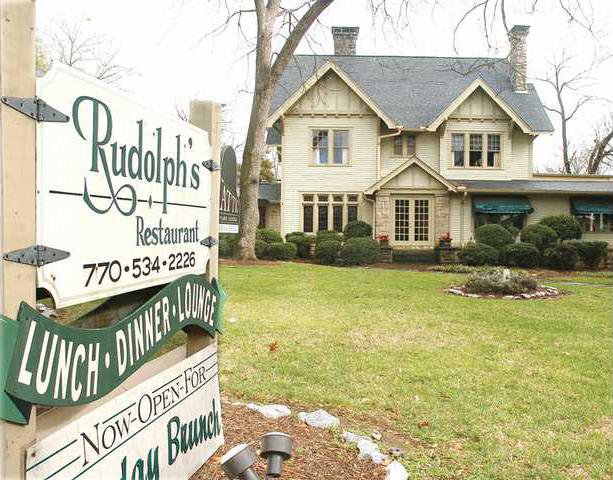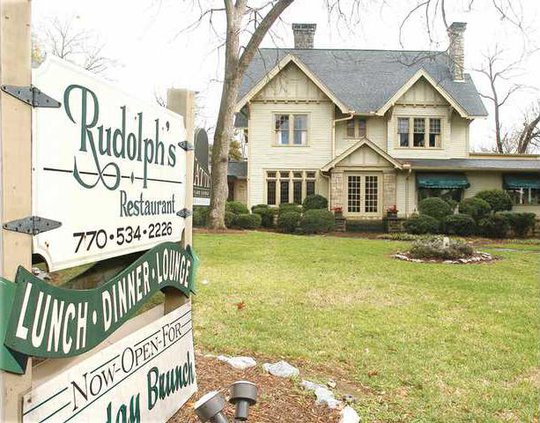Rudolph’s, a fine dining mainstay for years in Gainesville, has closed its doors.
The Green Street restaurant opened in the mid-1970s and has been a prominent special occasion venue since.
"There’s a lot of history with Rudolph’s," said Michael Hunt, immediate past chef and owner of the restaurant. "It’s been a big part of the town for a while. A lot of people have gotten married there, engaged there, had their proms there."
Hunt said he was forced to close the restaurant for financial reasons after December revenues came in much lower than expected. New Year’s Eve was Rudolph’s last night.
"Last year was a pretty rough year," Hunt said. "I really didn’t have a choice."
Hunt said the last year especially was difficult for upscale restaurants.
"Certainly the white tablecloth restaurants are going to be hit especially hard," Hunt said. "There’s a big local perception that Rudolph’s is expensive and it was a special occasion place. Places just can’t survive on that. ... A majority of our customers came once or twice a year for special occasions."
Rudolph’s is among a string of recent restaurant closings in Gainesville.
A Sonic drive-in restaurant on Dawsonville Highway as well as The Monkey Barrel and Mojo’s in Gainesville’s downtown all have closed in the last few weeks.
Tim Roberts, the owner of 2Dog Restaurant in Gainesville, said many restaurants had a hard time over the last year and may have chosen late December or January to close.
"Honestly, for folks in the restaurant business, closing the first of January is an easy break, meaning that usually Christmas is a good season for everybody — catering, extra work, people going out," Roberts said. "Getting through December makes it convenient to say ‘I’m done, I’ve had enough.’ January is more than anything psychological — new year, new start."
Kit Dunlap, president of the Greater Hall Chamber of Commerce, said she thinks the recent restaurant closings have a lot to do with the state of the economy.
"Small businesses, in general, are having a hard time like everyone else," Dunlap said. "It’s really not a surprise."
But Dunlap doesn’t think the restaurant industry is suffering more than others.
"There’s plenty of openings," Dunlap said, pointing out some of the new dining spots popping up around town.
She thinks problems that could have started earlier may have been exacerbated by a weak economy.
"It’s not just the present economy; they may have had other issues. This may be the nail in the coffin. Others are opening about as soon as others are closing," Dunlap said.
Roberts said a number of factors have made business difficult in the restaurant industry, with the first being fewer customers.
"It comes down to the fact that people are just not going out," Roberts said. "As much as the saying is ‘everybody’s got to eat,’ that’s very true, but not everybody has to eat out. People are eating more meals at home."
Higher food costs have also made business difficult. The price of food increased when fuel costs rose over the summer. And though the cost of fuel has dropped significantly, food costs have stayed high.
"We’re still paying more for product than we were. It hasn’t dropped with the gas prices," Roberts said.
Hunt said he thinks it’s important for people to support local restaurants, which have been hit especially hard lately.
"The community has got to support the local businesses," Hunt said. "Those people spend their money here. They spend their time here. What goes around comes around."



